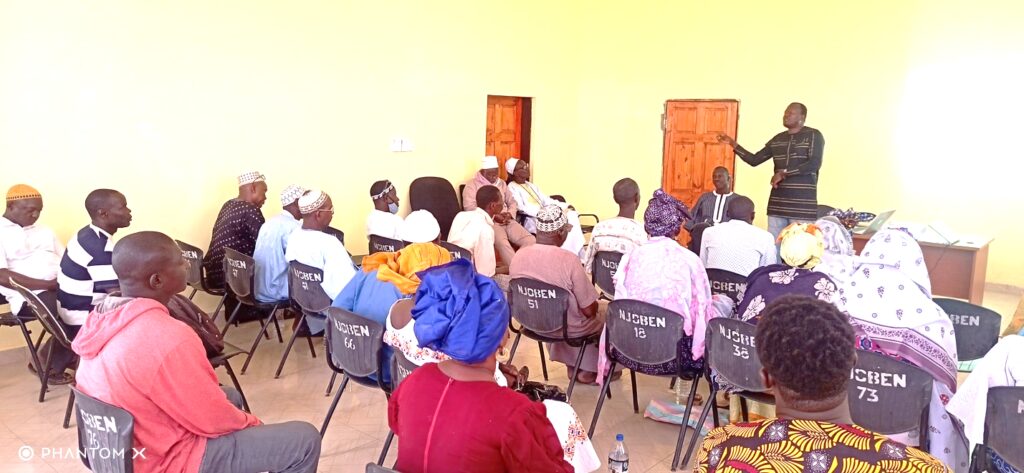By: Haruna Kuyateh
Lamin M Camara, an environmental specialist has disclosed that the Gambia Inclusive and Resilience Agricultural Development Project (GIRAV) project has invested over D500 million in the rehabilitation and construction of feeder roads total of 200 km across the country of which about 77km will be in the NBR.
He said this aimed to improve mobility and connectivity from community gardens and farms to markets with better access to main trunk roads.
The National Roads Authority (NRA) responsible for the planning, construction, and maintenance of the national road system in the Ministry of Transport Works and Infrastructures shall be responsible for the implementation of this sub-component.
He noted that the GIRAV project will also invest millions of dalasis to establish 40 modern gardens dubbed Agribusiness firms and 7 of these will be in the NBR.
Among other things, he said with the project, a modern Agro-logistics center worth more than D100 million to be located at Maka Farafenni along the Kerewan-Farafenni highway will also construct.
Participants at the convergence hailed the project for the foresight of promoting the protection of women and children against violence. The rehabilitation and construction of feeder roads and market will boost production and productivity.
All GIRAV projects will create employment for thousands of people based in the intervention site.
The climax of the daylong meeting in each of the five regions was the signing of individual Codes of Conduct by Regional Grievance Redress Committee members to commit themselves to the zero GBV policy of the World Bank and the Gambian Government.
Speaking at the GIRAV project outreach sensitization program, Siaka Marong said the programme will strengthen institutional efforts to respond to the risk of Gender-Based Violence (including Sexual Abuse and Exploitation (SAE), Sexual Harassment (SH) and Violence Against Children (VAC).
He lauded the move taken by World Bank to complement government efforts in the quest to safeguard and protect women.
He expressed that the government has committed to zero GBV citing the numerous laws enacted and the policies, strategies, and regulations developed and adopted in a bid to help ensure a GBV-free Gambia.
He said: “GBV devastates the life and well-being of its survivors and imposes high social and economic costs that undermine development and exacerbate poverty.”
He added that the World Bank is committed to fighting gender-based violence in all its forms and has zero tolerance for its occurrence in Bank-financed projects.
Fafanding Katiri Kinteh Social Development Specialist for the GIRAV project explained that all “these massive infrastructural/civil works” across the country will require the deployment of workers in the project’s targeted communities.
Also, he noted, the influx of workers may heighten the tendency and exposure to increased risks of GBV in the forms of sexual exploitation and abuse by project workers.
However, the objective of this project is to promote the development of inclusive, resilient, and competitive agricultural value chains, focusing on smallholder farmers and agribusinesses in project target areas across the country.
More so, the project is committed to sensitizing its stakeholders including the beneficiaries’ communities especially the women and young girls who in most cases vulnerable to GBV during project implementations. The project has developed an Environmental and Social Management Framework (ESF) which is aligned with the objectives of the ‘bank’s good practice note’.
The identified feeder roads in North Bank Region for rehabilitation/construction include No. Site Type of intervention 1 Kuntaya, Kerr Amadou Fayol 4.6 Rehabilitation 2 Jissa to Kerr Omar Saine- 6 km 3 Bangally Kerr Walli, Ndofan, and KeerJatta- 6 km Construction 4 Fass, Madina Maneneh, Sare Jobe Ndingu Charreh to Ndunku Kebbeh – 9 km Construction 5 Kerr Selleh, Kasewa Kabakoto – 4.5 km Construction 6 Main road, Macca Farafenni Land Sarr, Kerr Ali to Farafenni.

